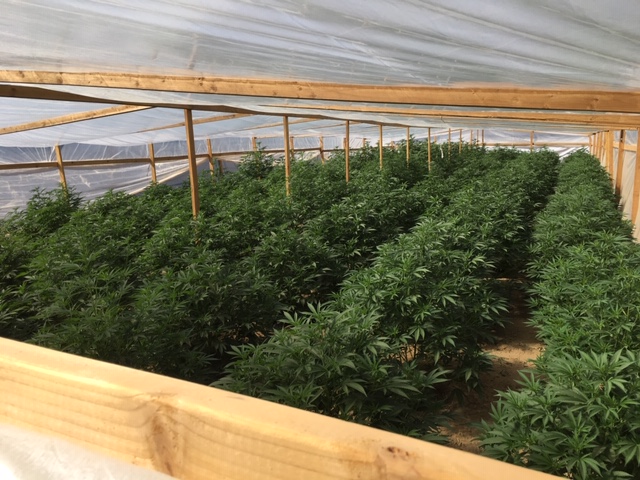What’s driving SLO County’s erratic marijuana oversight?
January 14, 2020

By KAREN VELIE
San Luis Obispo County supervisors will not only consider extending the time marijuana growers can continue to operate without a land use permit on Tuesday, but also what specific benchmarks applicants need to achieve to stay in the game.
For two years, under an abeyance resolution, marijuana growers who agreed to continue to grow on the same land as they did in Aug. 2016, were permitted to cultivate while they worked through the permitting process. The board has extended the abeyance resolution three times, primarily because of the planning department’s failures to process permits in a timely manner.
County staff is again asking the SLO County Board of Supervisors to continue the abeyance resolution, with a few new conditions; growers most have an active state license and proof they paid cannabis sales tax in 2019.
Only eight of the 31 growers who operated under the abeyance ordinance meet all the criteria. A couple growers sold their crop late last year, and did not submit taxes until Jan. 2020. Under staff’s proposed criteria, those growers will be prohibited from operating under the abeyance resolution.
At the same time, county staff has processed and approved permit applications for several cannabis businesses that have either illegally processed cannabis, violated regulations by growing substantially more than double what they were were approved to grow, or were found to have misstatements on their applications, leading many to question the integrity of the process.
Since 2016, county staff has regularly ignored board direction, creating rules that appear to favor some growers while putting other marijuana enterprises out of business. Under allegations of unequal enforcement and favoritism, about 25 percent of the planning department’s staff have left county employment in less than a year.
While county inspectors have mistakenly issued multiple violations, several for undergoing mandatory state inspections, some growers have avoided scrutiny for serious issues, such as having a felon managing a farm. California law prohibits felons from working in the marijuana industry.
At a Dec. 17 Board of Supervisors meeting, Helios Dayspring’s brother, Scott Dayspring, said he had worked at Dayspring Farms for five years. Scott Dayspring is a convicted felon who was sentenced to five years in prison for assault with a deadly weapon with an enhancement for gang involvement.
In addition to inconsistencies regarding criminal record checks, county staff is erratic in its oversight. For example, in a list of the dozens of projects that previously operated under the abeyance ordinance, it appears the county verified ownership on all of the properties, aside from two.
Late last year, the county tentatively approved a project that combined three grows into one, which is permitted under the SLO County Cannabis Ordinance as long as the properties are contiguous and under the same ownership.
However, in his application, Helios Dayspring claims two parcels on Cougar Ridge and one on Suey Creek are in his name, but records show two of the properties belong to other owners. County staff has not responded to questions about discrepancies in the ownership of the properties.
At Tuesday’s SLO County Board of Supervisors meeting, opponents of cannabis grows that negatively impact their neighbors and proponents of the cannabis industry are expected to battle over staff’s proposed extension of the abeyance resolution.






The comments below represent the opinion of the writer and do not represent the views or policies of CalCoastNews.com. Please address the Policies, events and arguments, not the person. Constructive debate is good; mockery, taunting, and name calling is not. Comment Guidelines